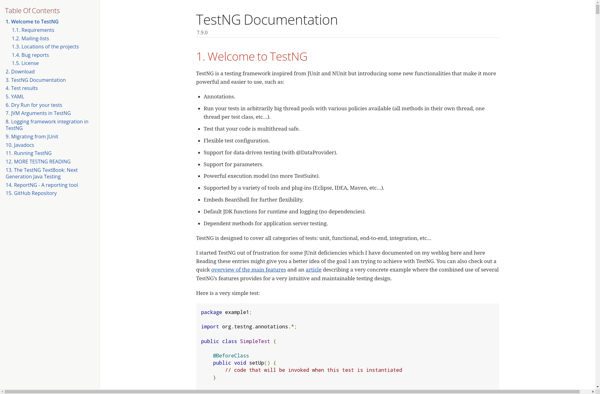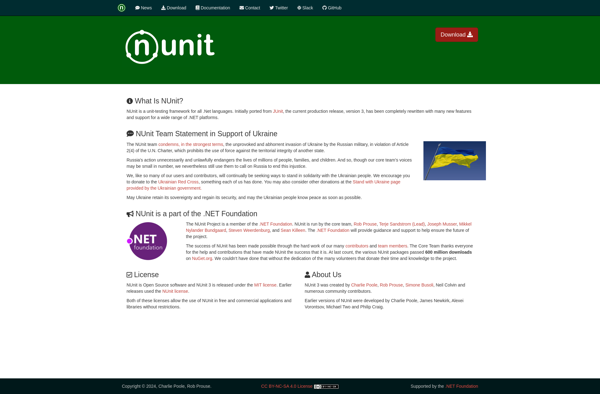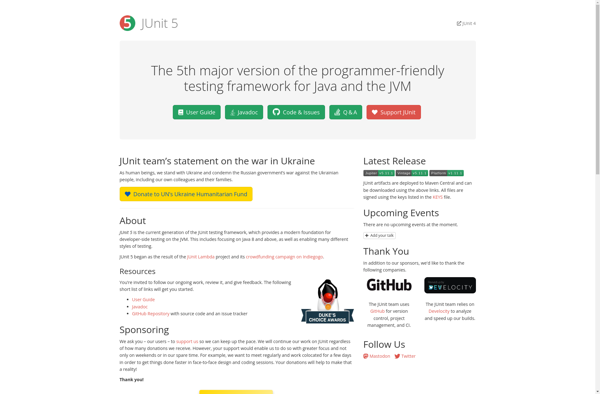TestNG

TestNG: Open Source Automated Testing Framework for Java
TestNG is an open source automated testing framework for Java that builds on JUnit with additional features like annotations, parameters, dependencies, grouping, etc. It allows for data-driven testing and parallel test execution.
What is TestNG?
TestNG is an open source automated testing framework for Java that builds on JUnit with additional features to support annotations, parameters, dependencies, grouping, parallel execution, data-driven testing etc.
Some key advantages and features of TestNG over JUnit include:
- Annotations - TestNG provides annotations like @Test, @BeforeMethod, @AfterMethod, @BeforeClass etc. to identify test methods, setup/teardown methods and configure dependencies.
- Support for Parameters - Test methods can take parameters for data-driven testing.
- Dependency Management - Supports defining dependent methods that run in specific order.
- Grouping - Logically groups tests for includes/excludes.
- Parallel Execution - Tests can run in parallel for speed & efficiency.
- Flexible Test Configuration - Test classes/methods can be included/excluded easily.
TestNG generates comprehensive test reports with details like pass/fail status, execution times etc. It has integration with build tools like Ant, Maven, Gradle and IDEs like Eclipse, IntelliJ and can be used for API testing, unit testing and end-to-end testing.
TestNG Features
Features
- Annotations for defining tests
- Test grouping
- Parameterization
- Dependency management
- Parallel test execution
- Flexible test configuration
Pricing
- Open Source
Pros
Cons
Official Links
Reviews & Ratings
Login to ReviewThe Best TestNG Alternatives
Top Development and Testing and other similar apps like TestNG
NUnit

JUnit
